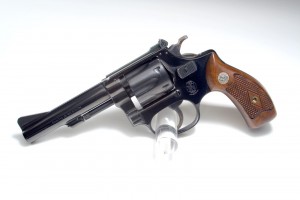 A fellow reader of the Skeptical OB kindly saved her screenshot of a mother’s homebirth experience of her first daughter’s birth. The blog post was first heavily edited, then eventually retracted altogether after Dr Amy Tuteur gave it a withering review on her own blog:
A fellow reader of the Skeptical OB kindly saved her screenshot of a mother’s homebirth experience of her first daughter’s birth. The blog post was first heavily edited, then eventually retracted altogether after Dr Amy Tuteur gave it a withering review on her own blog:
“Consider doula Nacia Walsh’s story of the homebirth of her emaciated, compromised baby, How My Homebirth Saved My Daughter’s Life. Nacia is not merely ignoring the fact that her homebirth midwives nearly killed her baby, but is delusionally praising them for “saving” the baby [emphasis mine]. Be sure to check out the birth photo of the baby who looks like a 3rd world victim of starvation.”
Here are my thoughts after reading it.
Acupuncture to speed up labour, eh? Oy.
One thing that never ceases to amaze me when I read NCB birth stories written much longer after the birth, it’s all kittens, rainbows and moonbeams, with flowery language.
“I was in a euphoric haze.” – while she looks at the midwife desperately trying to resuscitate her blue, floppy baby. Why is there no panic? Her husband is as white as a sheet. Their baby might be dying. And she’s “euphoric”.
Don’t most unmedicated births go something like, “AAAAAHHH OOOWWWWWW! GET IT OUT OF ME!”?
The midwife “was skilled enough to realize that removing the baby from her umbilical cords to bring her to the warming table in my kitchen, to administer oxygen would be detrimental to her fragile body”. I guess “whisking her away to the NICU” would be detrimental, too.
In what universe does that make medical sense?
Something you find a lot of in fiction writing is adjectives. Not cold, clinical facts (unless you write medical fiction like Robin Cook, who is a doctor at Columbia who writes medical thrillers on the side), but the adjectives that the writer wants to use to evoke an emotional response in the reader, to help them see the event in the way the writer wants it to be seen. Sometimes people even use adjectives too often which makes it feel like whatever point they were trying to make is best administered with a brick to the face.
Adjectives are used in clinical writing to do exactly what adjectives are supposed to do: give as clear as possible a sense of what is being observed in the clinician’s mind when he examines a patient. Take a look at your hospital chart the next time you’re in hospital for any reason: short, to the point, often code words or symbols for things like taking vitals. Descriptions of pain are reduced to numbers like a 1-10 scale. Or, if you have a chronic illness (like I do) that needs symptoms or medication efficacy being tracked over time, you get used to writing in shorthand, little bites that your doctors and nurses can absorb quickly. Why are doctor appointments usually only 10 minutes? Because that’s about the length of their attention spans.
In Nacia’s case, however, I see words meant to evoke romanticized ideals and drama of the situation – fragile, euphoric, blissful – not the horror of what happens when an underweight, blue baby isn’t breathing. The parents should be screaming at the top of their lungs to call 911. The drama didn’t include rushing the baby to the nearest hospital.
Wouldn’t anyone?
But no. Nacia is “euphoric”, “blissfully unaware” and should be bloody grateful her daughter survived the midwives’ inept ministrations and appears to be thriving despite being diagnosed with IUGR – intra-uterine growth restriction before it was even born.